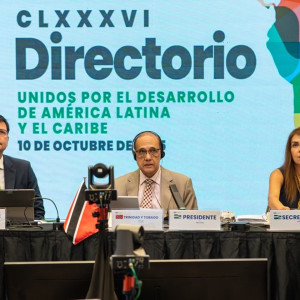Colombia secures CAF loan for railway reactivation

The Development Bank of Latin America and the Caribbean (CAF) has granted the Government of Colombia a loan of up to USD 300 million to support railway reactivation programme in the country.  The programme sets out an ambitious overhaul of Colombia's railway sector, focusing on the modernisation of its institutional and regulatory frameworks.
The programme sets out an ambitious overhaul of Colombia's railway sector, focusing on the modernisation of its institutional and regulatory frameworks.
Central to this effort is the creation of a National Railway Agency, alongside the revision of existing legislation and the potential designation of key infrastructure projects as being of strategic national importance. These reforms are complemented by initiatives to strengthen both urban and regional public transport networks through the adoption of cleaner technologies and measures to ensure long-term financial sustainability. At its core, the programme addresses deep-rooted structural challenges within Colombia's transport sector.
Despite its potential, the national rail network remains largely underexploited, with the bulk of freight transport relying heavily on road haulage. This dependence not only drives up logistical costs -- eroding the competitiveness of Colombian businesses compared to their regional counterparts -- but also contributes to high rates of road accidents, with serious economic and social repercussions. In urban contexts, the shift toward low-emission public transport technologies has made progress, though this has been uneven.
While Bogot? leads the way, smaller and mid-sized cities continue to face significant barriers to modernising their fleets and improving service quality, underscoring the need for targeted support to bridge the gap and ensure a just, nationwide transition. The "Programme to Support Railway Reactivation, Sustainable Mobility and Logistics Efficiency" in Colombia aims to revitalise the railway sector and position it as an attractive mode of transport for decarbonisation. The initiative seeks to reduce the country's reliance on road freight, promote cleaner alternatives, and enhance the overall efficiency of national logistics.
It also contributes to Colombia's climate commitments by encouraging a modal shift towards low-emission transport solutions.
Share on: